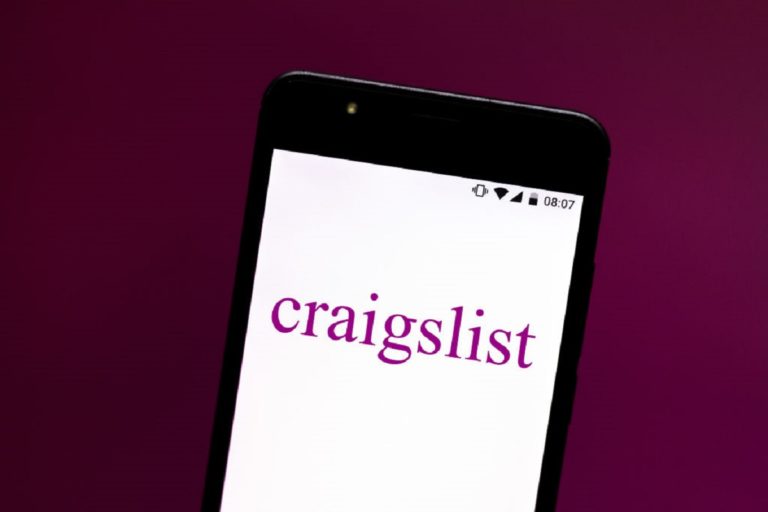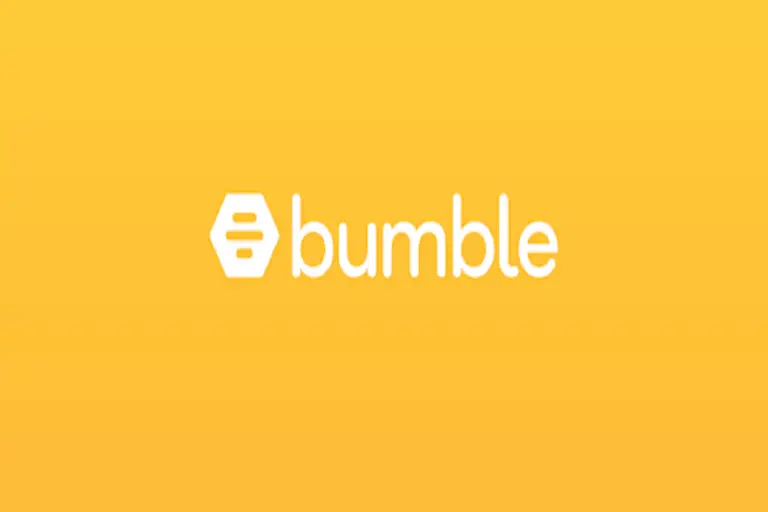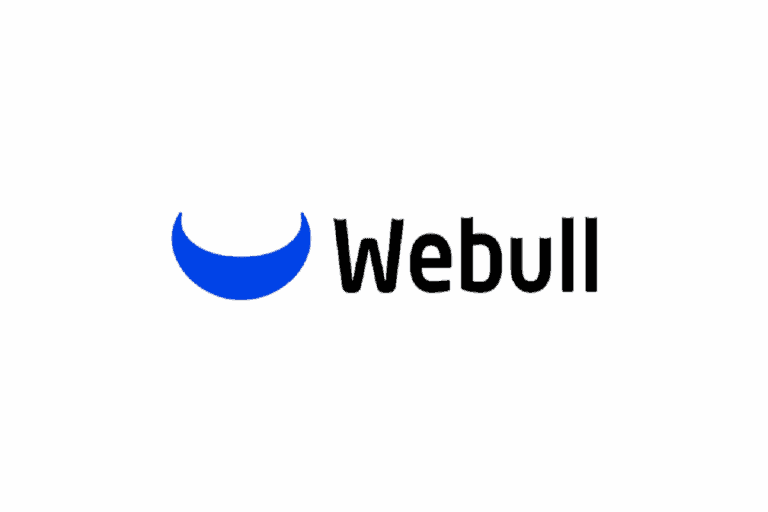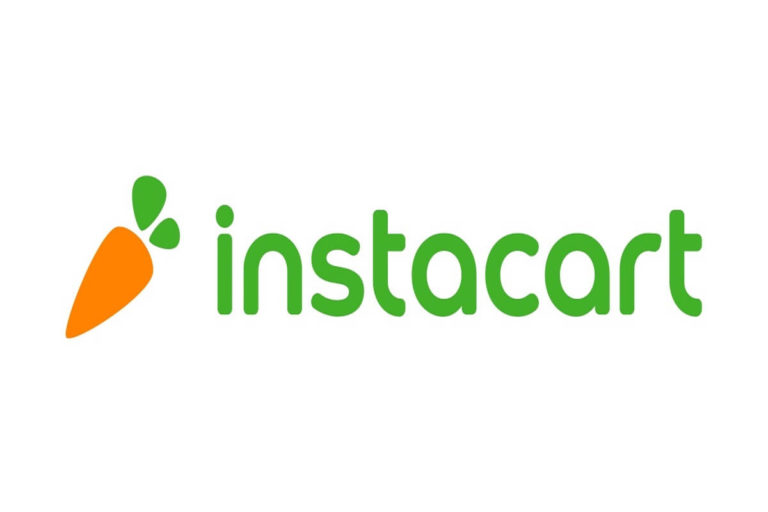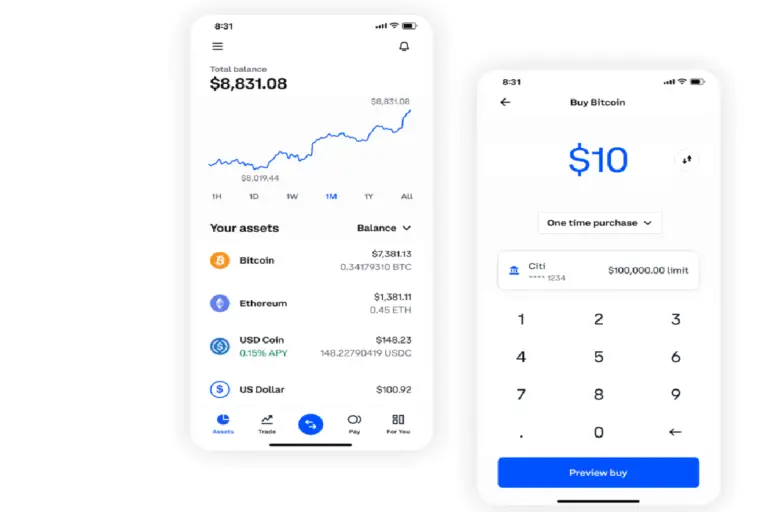The Honey Business Model: How does Honey make money?
Searching for online coupons is no fun. It is a tiring and frustrating process. Honey solves this customer problem.
Honey: Company Profile
Let’s look in depth at Honey and how does Honey make money.
What is Honey?
Honey, a popular browser extension helps customers locate online coupons. Most of its revenue comes from commissions on user transactions. Honey has partnerships with over 30,000 clothing, food delivery, and travel retailers.
The Honey browser extension is operated by Honey Science Corp., which is based out of Los Angeles, California, and is a PayPal subsidiary.
So how does Honey work and how does Honey make money?
How does Honey work?
The Honey browser extension is available on Google Chrome, Safari, Firefox, Opera, and Microsoft Edge browsers. Honey is also available as Android and iOS apps. The key features of Honey are the following:
1. Savings Finder
This is the critical feature of Honey. It scrapes the web and automatically finds the best deals for items that users have added to their carts and applies the available deals to the items. If Honey finds any working coupon codes, it enters them automatically, and you save money without having to search for the coupon codes and enter them manually.
2. Honey Gold
This is Honey’s rewards program that gives you “Gold” to use Honey while you’re shopping. Users can redeem Gold for gift cards at more than 5500 merchant partners. Every time you purchase at one of the supported online partners, you will receive Honey Gold up to 20% of your purchase. Users can redeem 1,000 Honey Gold for a $10 gift card.
3. Price History
This feature allows you to track an item’s price history and helps you make purchasing decisions based on past price trends.
4. Droplist
Honey also tracks prices of individual items and notifies you when the prices drop below a certain threshold at a participating retailer. If you are interested in purchasing an item at a discount price, you can add it to your Honey droplist. Honey will notify you if the item goes on sale at any supported retailer within 30, 60, 90, or 120 days.
You can also choose the discounted percentage at which you want to be notified. Droplist is a great way to save on items for which you’re willing to wait.
5. Amazon Best price
This feature finds better prices on Amazon by comparing sellers for you. It also has your price tracking and price history tool all-in-one and helps you save money.
6. Mobile App
If you’re more into mobile apps, Honey has an app called the Honey Smart Shopping Assistant available on iOS and Android app stores.
To use Honey, follow the below steps:
- Install the Honey browser extension
- Shop on any of the websites you usually would and add the items to your cart.
- Open your cart or checkout page and then click on the Honey icon in your browser’s extensions section.
- Click Apply Coupons. If Honey doesn’t find any working coupon code, Honey will notify you. Click on Try Anyway to force Honey to look for the coupons.
- Honey may take a few minutes to try all the codes that it finds. When it finishes finding the codes and applying them, Honey will display the money saved.
- Click on Continue to checkout and complete your purchase as usual.
Honey’s price history displays how much an item’s price has increased or decreased in the past so that users can pick the right time to buy.
To uninstall Honey all you have to do is go to the extensions or add-ons section of your web browser and remove or uninstall the Honey extension.
How was Honey started?
Honey was started by Ryan Hudson and his business partner George Ruan. Hudson was a self-taught programmer who had earned his undergrad from Cornell and later graduated from MIT with an MBA. He was no stranger to entrepreneurship and focused on the tech entrepreneurship track at MIT.
Before his MBA, Hudson had worked in various roles in the tech space. He had co-founded a couple of companies and had worked in Program Manager and Product Manager roles. He was the founder of YouShoot, the first nationwide digital camera rental service for events. He was named one of Business Week’s “Top Young Entrepreneurs Of Tech” in 2005 – alongside Mark Zuckerberg.
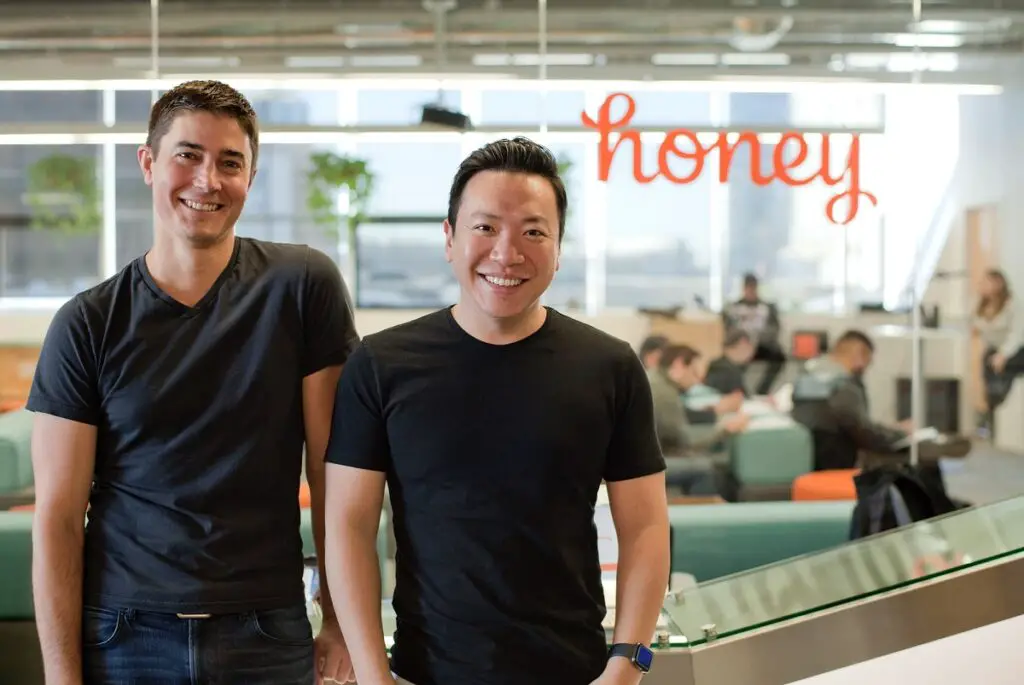
Ruan had extensive experience in the startup space and had co-founded and led multiple companies.
Hudson got the idea for Honey one night when he was looking online for a coupon code and couldn’t find any when he ordered pizza online for his kids. To solve this problem, he put together a prototype for an extension that could automatically surface coupon codes. He built the prototype in just six weeks, and Honey was launched in 2012.
Honey’s Growth
Although Honey had gained 200,000 users and over 100 merchant partners within the first year of its launch, the startup’s initial days were not smooth. The start up was not yet making any money and was advertising its coupon deals free of charge. For over two years, Hudson and Ruan had a hard time convincing investors to invest in a desktop browser extension, as mobile apps were taking off.
When the money ran out in 2013, Hudson went back to his day job as a product manager at an ad-tech startup so that he could pay the bills. Meanwhile, Ruan continued working with the team that remained.
Honey continued to attract users based on word of mouth. People loved the product, and Honey went viral when one of its beta testers leaked information about Honey on a Reddit post. Honey was accidentally launched and the rest, as they say, is history.
Honey had 900,000 organic users by 2014. Today in 2021, Honey has over 10M downloads and over 17M users.
According to Honey, users save an average of $126 a year. Consumers love Honey because it gives them the confidence they need to checkout instead of looking for coupon codes.
Retailers love Honey because Honey helps reduce cart abandonment and increases cross-site shopping, resulting in incremental users and sales.
Honey’s Funding and Valuation
The company has raised a total of $31.8M in funding over six rounds, according to Crunchbase. Honey’s latest funding was raised in 2018 from a Series D round. Honey has been backed by several venture capital firms, including Citi Ventures, Anthos Capital, Mucker Capital, Ludlow Ventures, etc.
In 2020, Paypal acquired Honey for $4 billion, the largest acquisition of PayPal to date. Ruan, the chief executive officer, and Hudson received roughly $900 million and $575 million.
Despite the acquisition, Honey’s founders remain focused on its mission of making money fair for everyone. Its mission closely aligns with PayPal’s mission to democratize financial services. Honey’s founders never intended to sell and look forward to continuing to lead Honey and its growth.
Honey’s Core Values
Honey has the following core values.
- Seek the core principles
- Do the right thing
- Think Clever
- Build things that make you proud
- Make everyone around you better
- Own the outcome
- Grow without limit
Is the Honey App Safe?
Although there is a risk of malware installation in specific browser extensions which can also collect your private data, Honey appears to be safe.
Honey is extremely popular among online shoppers; it has encountered more than a few controversies about its safety. In 2018, RetailMeNot sued Honey over patent infringement, saying Honey has copied technologies that facilitate access to promotional offers, merchant offers, and coupon codes.
RetailMeNot stated that Honey’s unauthorized use of these technologies had enabled key features of Honey’s website and browser extension. Honey, which learned about the lawsuit in RetailMeNot’s press release, had called these accusations baseless.
When Paypal acquired Honey, Amazon warned its users about the security risks of installing Honey. The warning stated, “Honey’s browser extension is a security risk.
Honey tracks your private shopping behavior, collects data like your order history and items saved, and can read or change any of your data on any website you visit. To keep your data private and secure, uninstall this extension immediately.”
Although Honey collects data about your shopping habits and sends it back to its servers, Honey has stated that it doesn’t sell your information to third parties. Honey tracks your browsing to appear only on specific pages.
According to the company’s Privacy and Security policy, “Honey doesn’t sell personal information, nor does it track search engine history, emails, or browsing data on any non-retail site.”
Honey has reiterated its commitment to users, saying, “We only use data in ways that directly benefit Honey members — helping people save money and time — and in ways they would expect.”
The timing of Amazon’s claims seems to be suspect, especially as Honey has been compatible with Amazon for years, and it looks suspicious that Amazon is discouraging customers from using a tool that incentivizes shoppers to shop on Amazon. Amazon also has a competitive product called Amazon Assistant, so that’s another reason to question Amazon’s motives.
How does Honey make money?
Honey makes money from affiliate commissions from merchant partners. These affiliate commissions are earned by Honey when users use Honey to find savings or activate Honey Gold Rewards. The affiliate commission that Honey makes is a percentage of the sale made.
Final Thoughts
We hope this article has shed some light on Honey’s profile and how does Honey make money. Honey has reinvented the practice of clipping coupons for the internet, with a strong leadership team at the helm. Several competitors to Honey are already in the market, such as Amazon Assistant and Google Shopping.
These products offer functionality that Honey already provides, such as product price tracking and finding deals. It will be interesting to see how Honey will further innovate in the eCommerce space and continue to be an asset for PayPal.
Other Business Models: Venmo, Carvana, DoorDash, Discord, Afterpay, Zoom, Zelle, Craigslist, Nerdwallet, OfferUp, Webull, Hinge, Bumble, Vinted


